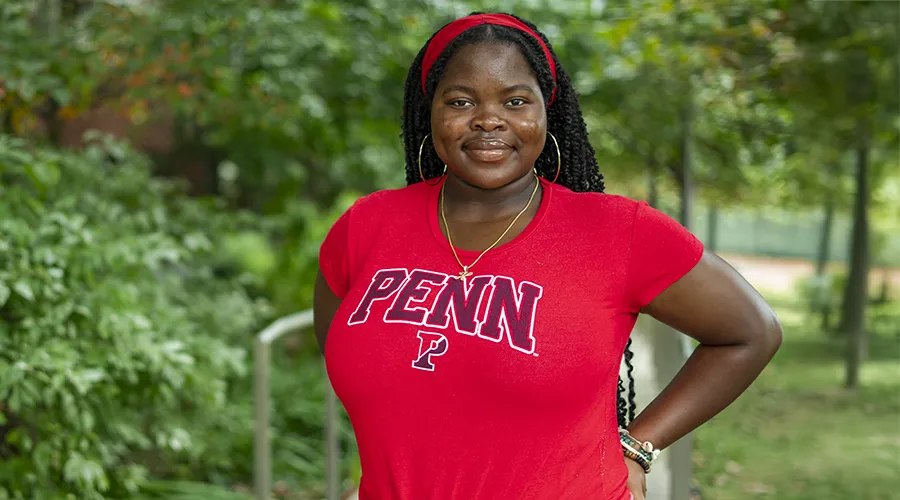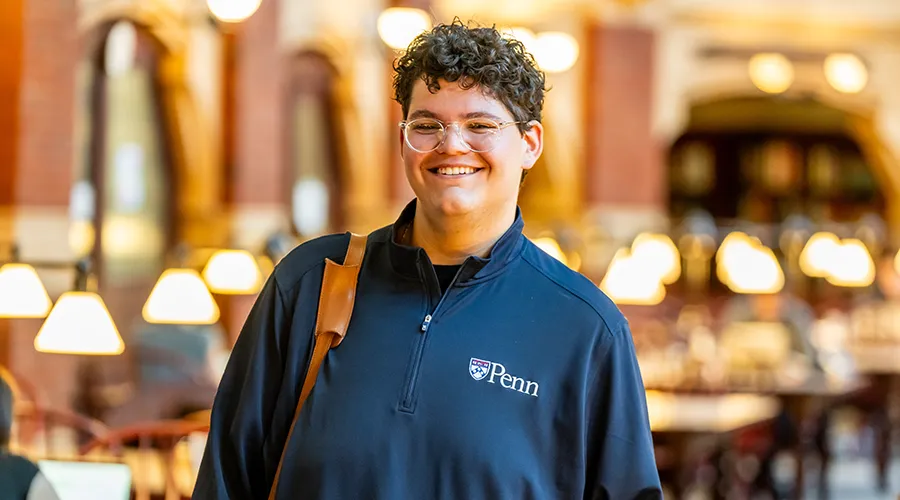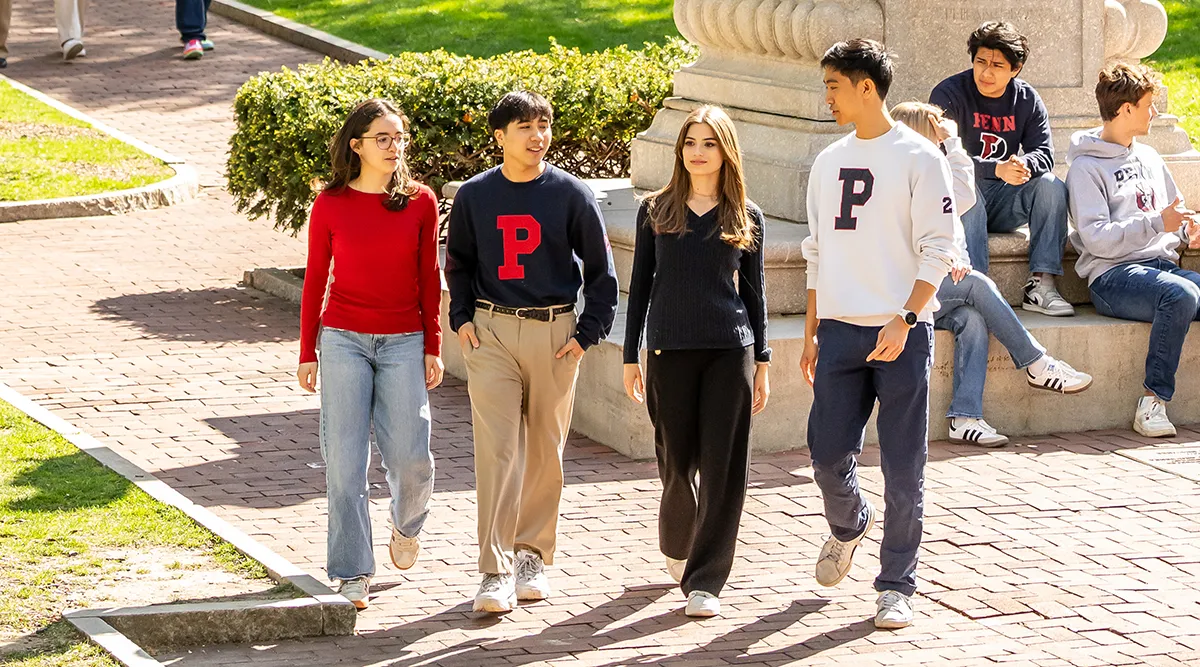As most students finish packing their bags for a return to campus and the start of the fall semester, one small group will already be settling in.
Sticking Together, Succeeding Together
The Clark Scholars Program at Penn Engineering rewards effort and fosters connection
No, they didn’t get their dates mixed up—these 10 engineering students are Clark Scholars, part of a prestigious program and one of several student groups who are getting a jump start on their first semester at Penn.
Fresh Faces, Friendships, and Funding
The Clark Scholars Program is named for A. James (Jim) Clark, a first-generation college student, civil engineer, and successful businessman who understood firsthand the transformative power of an undergraduate engineering degree. Established at Penn in 2017 with a $17.5 million investment by the A. James & Alice B. Clark Foundation, the program features robust engineering, lab, and business coursework as well as forward-looking mentorship opportunities.
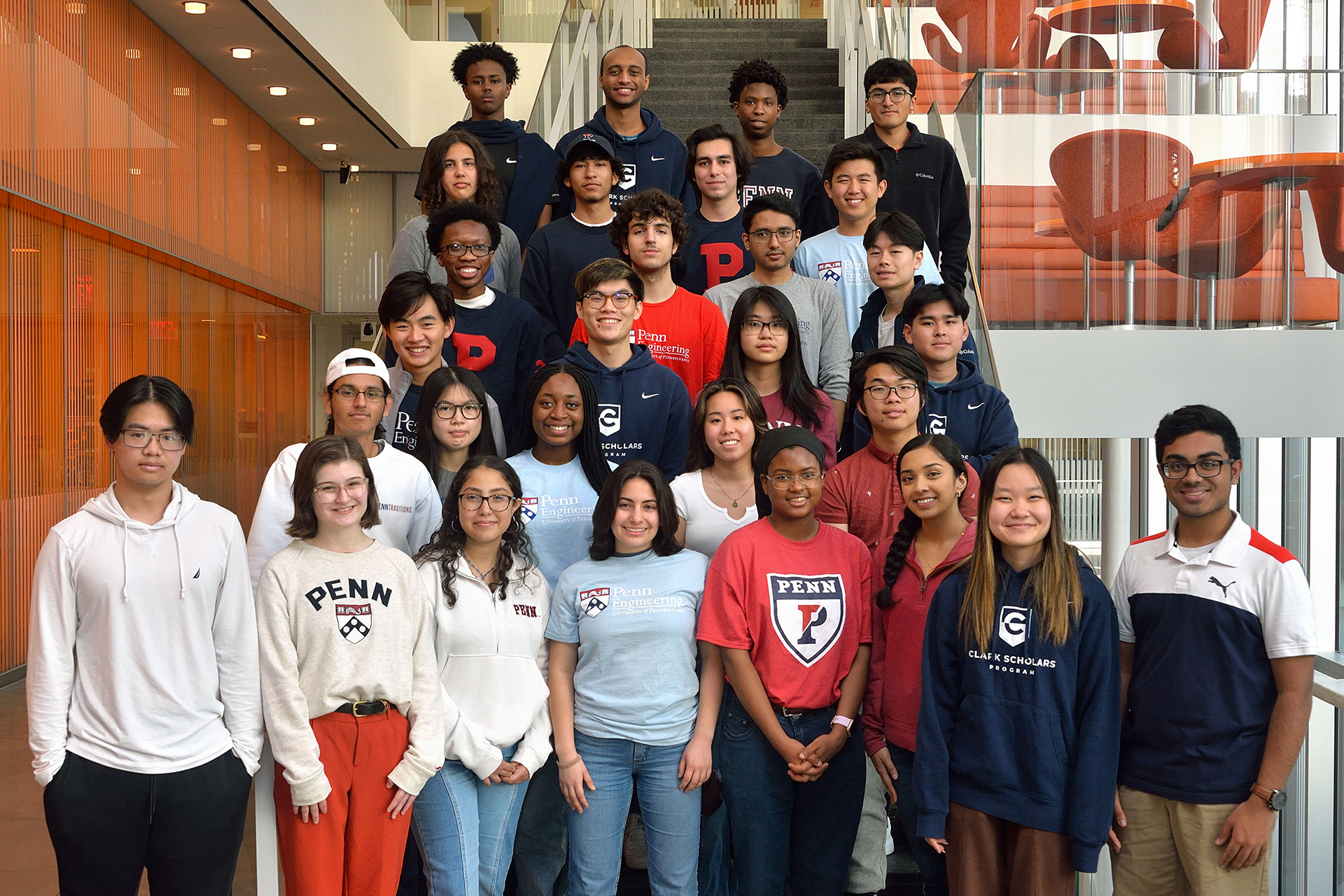
A group of cross-cohort Clark Scholars in 2022. The program is composed of 40 undergraduate students at any given time.
This past spring, the Clark Foundation invested an additional $2.5 million in the program, continuing to reduce financial challenges, removing work study requirements, and providing stipends for valuable summer engineering internships or research projects. The investment also covers tuition for summer courses not included in regular financial aid packages, helping to ease the academic load for scholars while empowering them to focus more fully on their academic pursuits.
Those academic pursuits are poised to begin: the Clark Scholars Program welcomes 10 new students annually with pre-orientation programming, led this year in part by Faculty Director Paulo Arratia. “Part of the essence of the Clark Scholars Program is to provide resources, opportunities, and mentorship to promising students with financial need who would not have them otherwise,” notes Arratia. Recently appointed as the program’s director, he’s just as enthusiastic as he hopes incoming students are. “Part of my job is to make sure their excitement continues,” he shares. “I want to see them, four years from now, just as excited as they are today about their experience at Penn, their classes, their research, and beyond.”
Olivia Roth, Penn Engineering’s Director of Student Success and Advising, agrees, and notes that pre-orientation group activities and introductions to elder Clark Scholars cements part of the program’s unique value: its cohort system. “One of the Clark Scholars Program’s key benefits is its wraparound services—the small peer group being one of those,” she observes. “It’s a real opportunity to cultivate a close network of students who can support one another over this four-year journey.”
Wraparound Support
Once the school year starts, students participate in a range of programming that includes their engineering and selected business coursework, community service, career exploration, academic mentorship, cohort activities, alumni engagement, and introductions to the national network of Clark Scholars, which extends across 11 of the nation’s top engineering institutions.
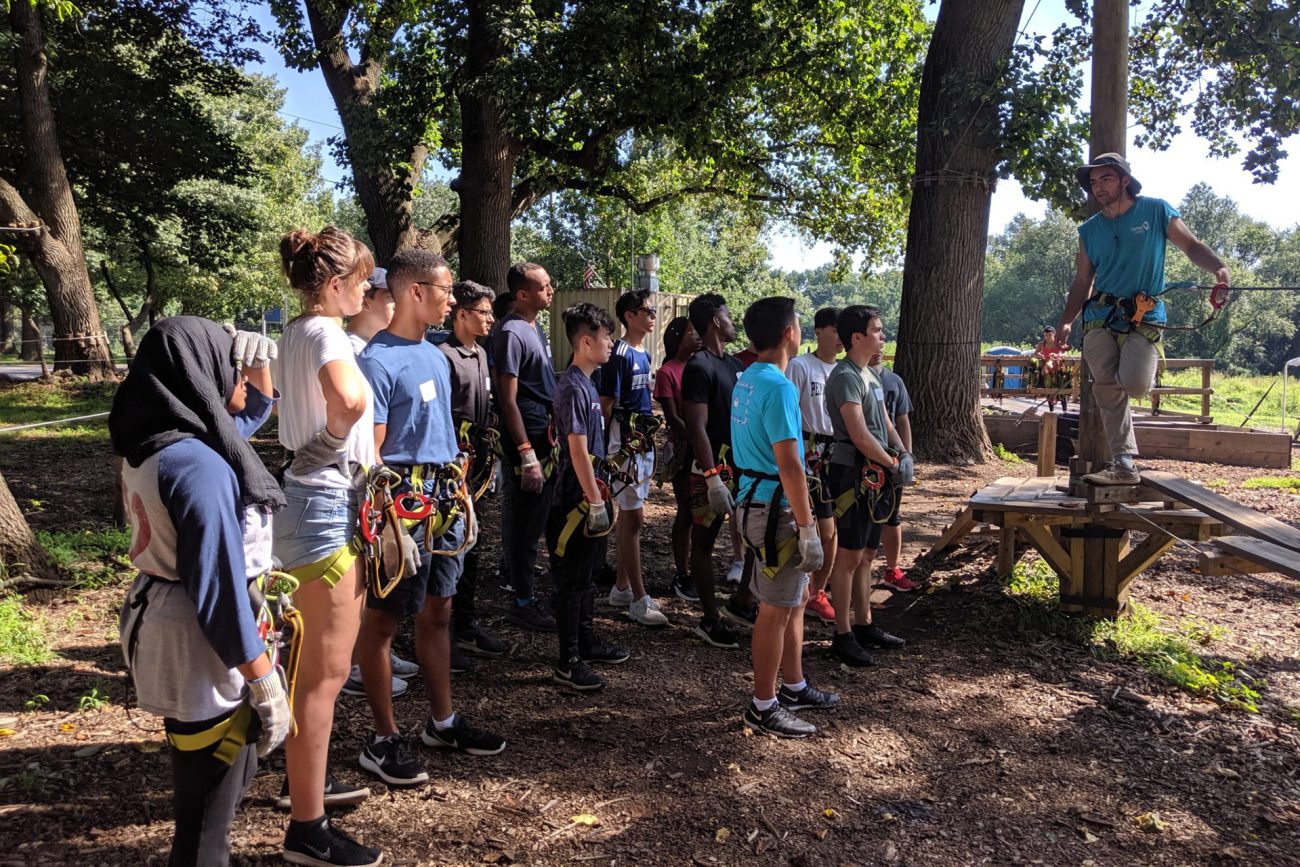
It could seem overwhelming, but each Clark Scholar has Arratia, Roth, and 39 other Scholars to support them—not to mention professors, principal investigators and fellow researchers, mentors, and friends outside the program.
“Our job is to make sure they are developing not just as scholars, but as people, and that they’re ready for the workplace,” says Arratia. To that end, both Arratia and Roth hope to continue tailoring Clark Scholars’ experiences to align with the appropriate stage of their undergraduate experience—focusing on research and communication skills earlier on, and gradually transitioning toward career-oriented assistance as students near graduation.
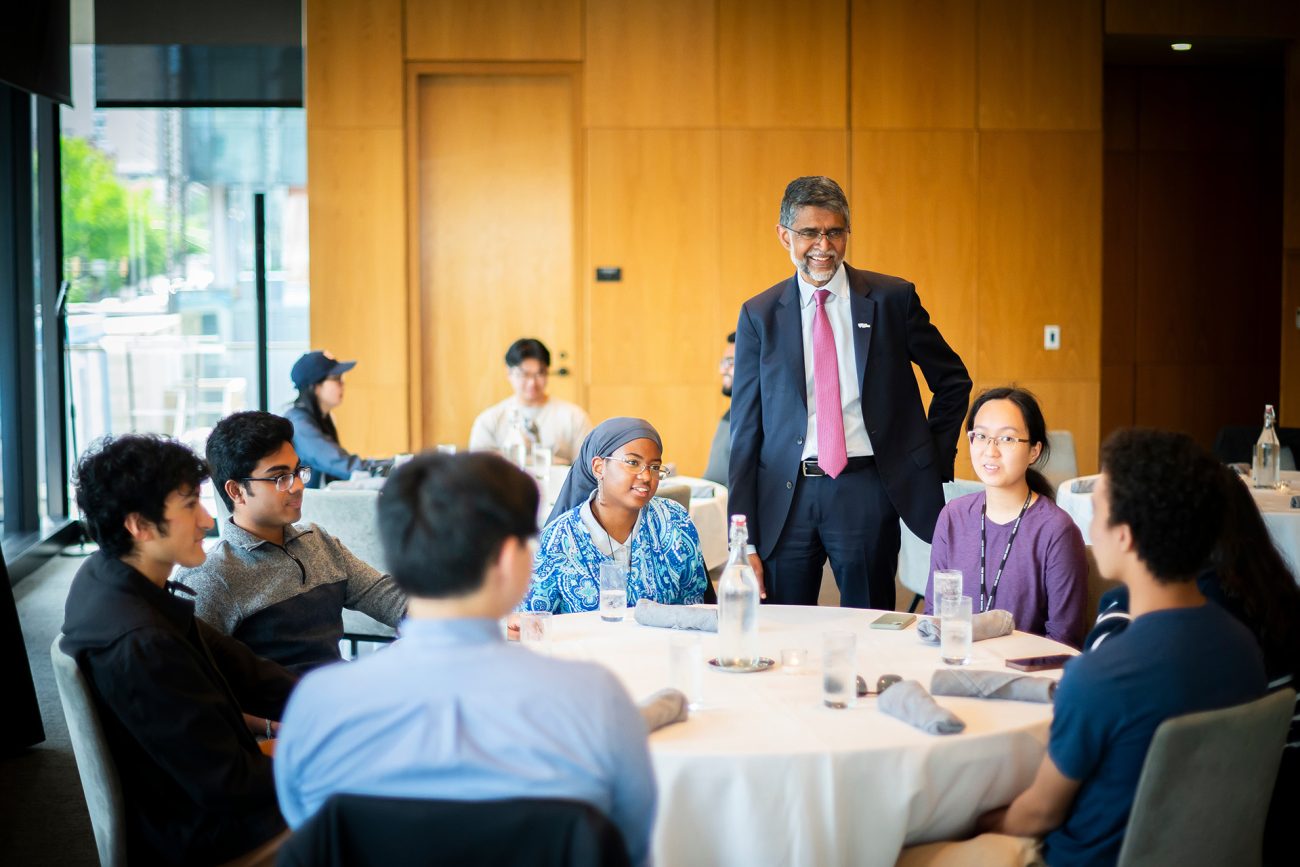
This mentorship and support are matched by a dedication to resourcing students. “The idea is to give students a fast track to resources, inspiration—whatever we can do,” says Roth. One example distinguishes itself in her memory: “We were at a dinner celebrating the graduating Clark seniors, and one of the students said she was interested in meeting an astronaut. The Dean [of Penn Engineering] was there, so we asked, ‘Hey, do you know any astronauts?’ And he said, ‘Yes, one of our graduates has worked at NASA, and I’ll help you out!’.”
It’s an opportunity as unique as this—and others, such as the very ability to successfully pursue an engineering degree—that might be merely a moonshot for these students without the Clark Scholars Program.


